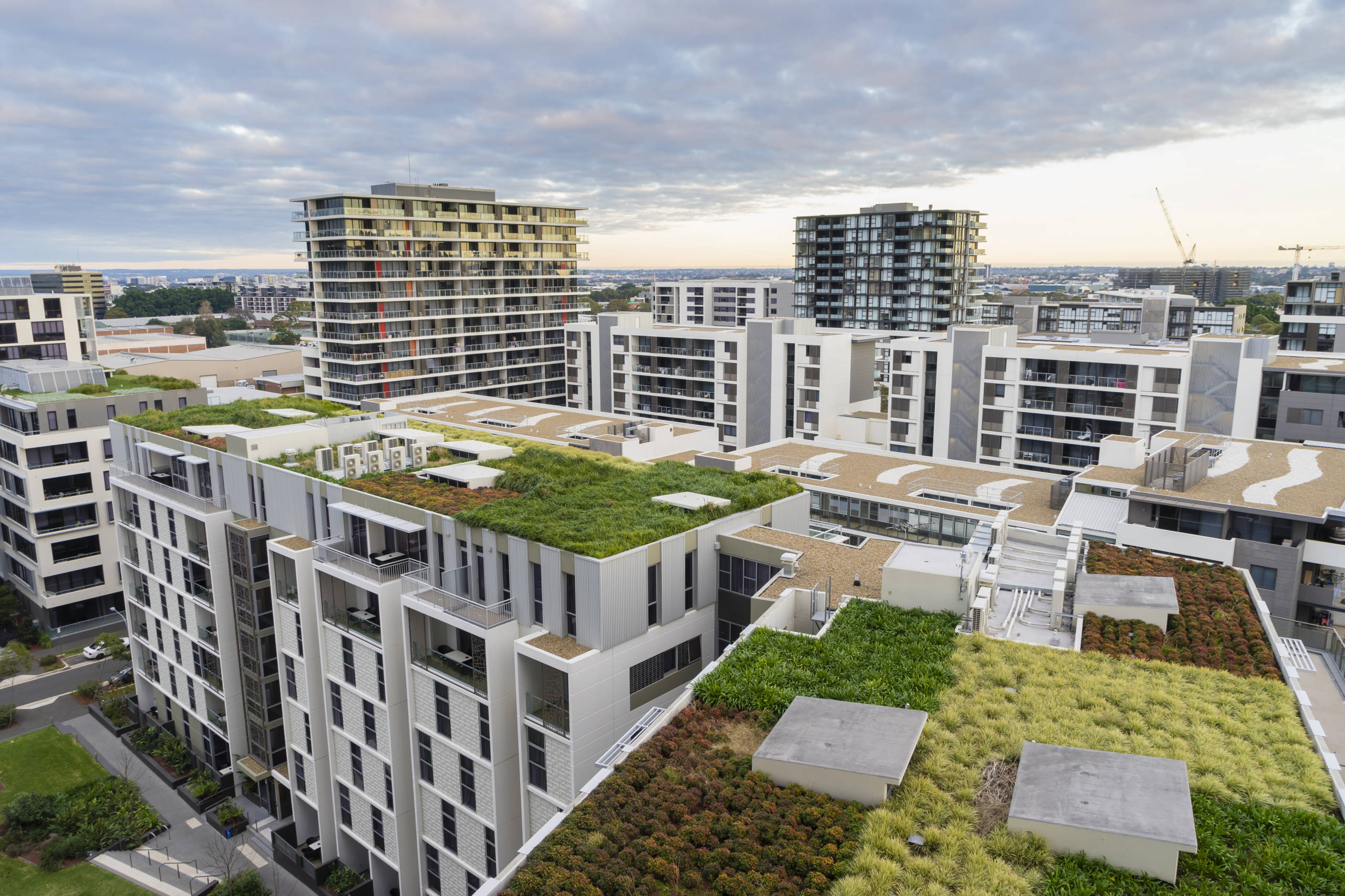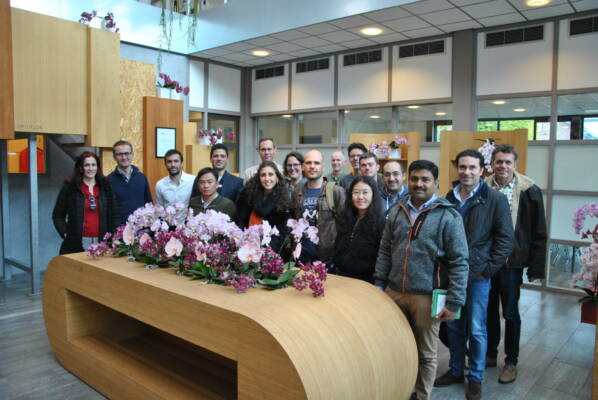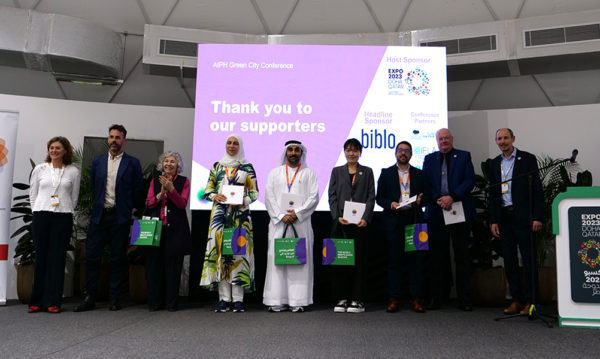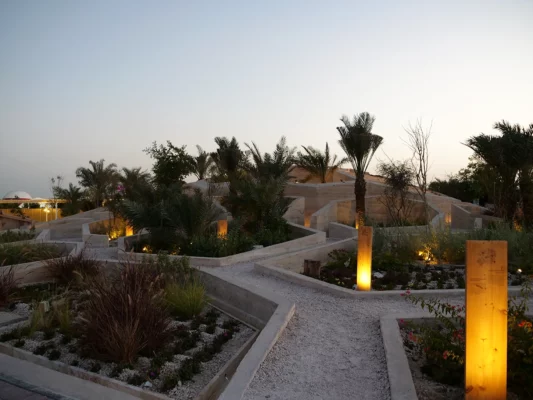Nature-based solutions (NBS) is a term that is becoming widely used to describe the use of natural systems to solve problems that have been created by urban and rural development. NBS centre around plants, and there are many examples of successful implementation of NBS and the benefits that this provides to society and the environment. This is good news for the ornamental horticulture industry which supplies plants used in NBS, and this could be the catalyst to stimulate a green economy.
This question was posed by Siobhan McQuaid (Trinity College, Dublin) and Daniela Rizzi (ICLEI Europe) for a global roundtable discussion: How can nature-based solutions (NBS) provide the basis for a nature-based economy?
The Nature of Cities (TNOC) hosts a monthly global roundtable to gather ideas and opinions from a transdisciplinary panel as a way to stimulate open discussion. In this roundtable Siobhan and Daniela posed a number of questions to stimulate debate:
- How do you see nature-based solutions contributing to the sustainable economy of the future?
- How do we go from nature-based solutions to a nature-based economy — where we work in harmony with nature — planning, growing, harnessing, harvesting and/or restoring natural resources in a sustainable way?
- What type of new jobs, new innovations, new enterprises might emerge from a nature-based economy and what are the challenges to uptake of such a concept globally?
“While much focus to date has been on the environmental or social benefits of nature-based solutions, less attention has been paid to their economic potential and their role in contributing towards more sustainable and just societies”, suggest the authors.
These are some of the global opinions about whether the values of nature (in many dimensions) can be recognised and how these values could be firmly integrated into our economies.
John Bell and Tiago Freitas of DG Research and Innovation: “The potential is huge. However, unlocking full NBS potential will need a massive increase in investment, both public and private and will hinge on a paradigm shift in how our economies are organised and how they value nature and its services. A transformation is needed in our current business model, bringing local actors to the driving seat for changes. In a nutshell – we are not short of ideas. Science is clear on what needs to be done, but it is time to deliver innovation, demonstration of NBS – across policy, business and civil society.”
Isaac Mugumbule and Rhoda Gwayinga of Kampala Capital City: “Governments, policy makers, experts and private sector need to collaborate and develop Nature-based economic indicators. These could explore factors like urban forestry cover, air quality, blue infrastructure, population growth, green technology. Nature-based economic indicators would then be used as a basis for driving key economic policy decisions as opposed to the norm.”
Ana Mitić-Radulović, Centre for Experiments in Urban Studies (CEUS) from Belgrade: “Post-pandemic recovery is the perfect occasion for spatial and urban planners to spark the conversation on grey-to-green transition of the public spaces and infrastructure, and for the governments to accept nature-based solutions and the accompanying economic activities, reskilling and upskilling of workers for green jobs, and adoption of policies which truly embrace nature-based economy.”
Rupesh Madlani and Emre Eren, both involved in innovative finance mechanisms: “The extent to which nature-based solutions can provide a basis for a nature- based economy depends on the coinciding policies, frameworks and mechanisms implemented. With the correct policies that address barriers and drive enabling factors, nature-based solutions include such a wide variation of projects that they provide a strong foundation to achieve a nature based economy. Furthermore, in order for nature-based solutions to provide the basis for a nature-based economy, there needs to be greater transparency around the frameworks used to identify nature-based activities and ensure funder capital is directed to the correct coinciding projects. For example, the IUCN Global Standard provides clear parameters for defining nature-based solutions and a common framework to help benchmark progress. Such a standard also allows for the wider stakeholder groups in society to get involved and engage with the governance structure of the standard.”
David Simon, Professor of Development Geography at Royal Holloway, University of London: “In a monetized world, attaching tangible values to ecosystems and the services they perform is the most likely way to conserve them.”
Cecilia Polacow Herzog, Urban Landscape Planner at Pontifical Catholic University of Rio de Janeiro: “Brazilian cities are still introducing nature-based solutions as demonstration projects on a slow pace. The landscape transformation must gain scale urgently, bringing nature to all possible places. Taking out cars, planting trees and opening spaces for people close to regenerated urban nature, creating new and sustainable businesses and jobs.”
The opinions expressed in this TNOC global round table suggest that nature-based-solutions in the urban environment go beyond simply providing an opportunity for reconnecting people and nature. They work in tandem with the built infrastructure, providing solutions that hard, engineered systems cannot deliver on their own. Implementing successful nature-based-solutions is driven not only by knowledge, but by an understanding of how the knowledge contributes to the solution. From this perspective, no single sector can drive a nature-
based economy. When nature-based-solutions become an integral part of city infrastructure, nature becomes woven into the economic support network, providing new business opportunities, jobs, and income-generating activities across a broad spectrum of the population.
Read the full report from TNOC.



























